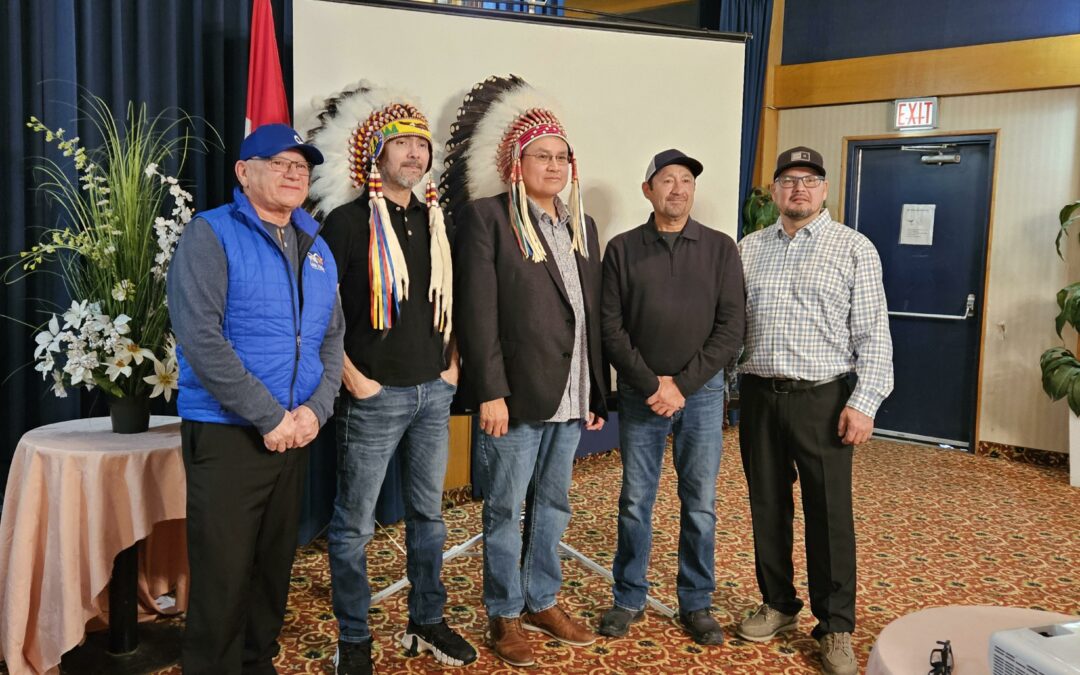The Indigenous Harvesters Association (IHA), formerly known as the Northern Saskatchewan Trappers Association (NSTA), hosted its annual general assembly last week in Prince Albert.
Barry Carriere grew up on the land as a trapper and fisherman in the Cumberland House area. He had dreams of becoming a carpenter, which he fulfilled, and he worked in the profession for over 20 years.
Later in life he decided he wanted to go back to trapping and started out as an NSTA member for the northeast region and became vice president of the organization around three years ago.
At the time Jared Nelson was the president of NSTA but decided to step down and recommended that Carriere fill his position.
“So, I became the acting president and had no money to host the next AGM, so I had to scramble to get some money from the chiefs; my chief stepped up to the plate: Chief Rene Chaboyer,” explained Carriere.
Carriere stated that when he got a hold of the NSTA’s books, the business was in rough shape, and the business wasn’t being paid for. He was forced to create a new business with a different name, and after some brainstorming with board members, they decided to call the new business the Indigenous Harvesters Association, based on hunting, trapping, fishing, and gathering.
After the fresh start, the new association hosted its first AGM last spring with lots of support from trappers across the province as well as chiefs and organizations.
“So that was a good start for us after being zapped out of our corporation and now having a new corporation; everything kind of came together,” he said.
Shortly after, Carriere was speaking with an elder who told him about the Blueberry Treaty case.
The Blueberry Treaty case was a legal case settled between the Blueberry River First Nation and the British Columbia government. The Blueberry River First Nation recognized that the provincial government had infringed on their Treaty 8 rights.
When signing Treaty 8, Blueberry River First Nation thought there would be a partnership with the B.C. government to protect their rights to hunt, fish, and maintain their way of life, which was impacted by industrial development, negatively affecting the First Nations traditional lands and ecosystem.
Since the Court’s decision, the B.C. Government has honoured the ruling and has stopped issuing new permits for new development that would further infringe its treaty rights.
“So, I read the case a few times, and one day I said, ‘Wow, this is what I’ve been looking for my whole life,’ and my phone rang, and my elder said, ‘We need to push this forward through your organization. You call yourself the Indigenous Harvesters Association based on hunting, trapping, and fishing. This is the same thing. You need to do this,” he explained.
Through Carriere’s connections he built while working as a carpenter across Canada, he knew people who knew about the Blueberry Treaty case and was connected with the lawyer that worked on the case.
Carriere is working with the lawyer on a similar grassroots movement and introduced the lawyer at that IHA’s AGM last week.
“Now it’s going to be our time to start talking; the work is going to start now, and I’m so happy to have my board to back me; there are eight of us,” he said.
The board will continue to work with leaders and community members across the province on the grassroots movement, pushing for collaborative agreements with the province.
“We have to work as a team; if we don’t work as a team, we won’t get anywhere; that’s my message to the Sask government,” he stated.
